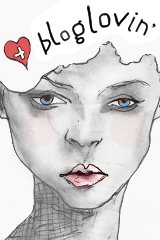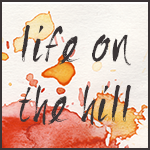Recently, Alison Tait, over at Life in a Pink Fibro, released an e-book of stories written by 32 bloggers, talking about things they didn't tell you about parenting. Its 4.99, and all proceeds are going to Foundation 18. Foundation 18 "exists to improve the quality of life of orphaned and underprivileged children, by providing them a safe environment in which to grow whilst educating them for a brighter future living in harmony with their environment. Established in June 2010 by Australian humanitarian and conservationist Cate Bolt, Foundation 18 Indonesia (in partnership with Project 18 Inc., Australia) is a non-denominational, not-for-profit, non-government organisation dedicated to the physical and emotional nourishment of children."
With all this conversation going on about the things they didn't tell you about parenting, it brought to mind my own parenting journey. Having no good role models of my own, caused me to actively seek out information about how I wanted to parent, along with a few good in the flesh role models found along the way.
The first book I read, that wasn't just a development guide for children, was Virginia Beane Rutter's Celebrating Girls: Nurturing and Empowering Our Daughters It really laid the foundation of how I wanted my relationship with my daughter to be, and thankfully is.
From its opening paragraph
The word celebrate comes from the ancient greek word melpo - meaning to sing, to dance, to praise! I offer this book in praise of girls, to help nurture and empower them. It addresses the question of what we can do to enhance our daughters' femine selfworth.
I was hooked. A funny thing happened while I was reading this book. My own feminine self worth was nutured and empowered as well.
As my daughter navigated her way into her teens, things changed. This girl/woman who stood before me was fraught with pushing towards me, and pulling away from me. I found myself on unchartered ground as a parent, and had no idea what to do. Again I went seeking for guidance, and information.
After seeing a review in a magazine article about teenage girls, I got a copy of renowned child and adolescent psychologist Michael Carr-Gregg's Princess Bitchface Syndrome: Surviving Adolscent Girls. Before Laura arrived firmly in teenagehood, I remember seeing it on display at bookshops and thinking, whoa, that's a bit harsh. Once she had arrived, I thought it was a pretty apt discription.
The book is described
In this hard-hitting book, Michael Carr-Gregg focuses on the special trials
of raising adolescent girls today: what to do when your previously quiet, loving
daughter becomes a restless, rebellious stranger who behaves like a responsible
adult one day and a vampish brat the next.
Part of the problem is that girls are becoming sexualised earlier, and their physical development is shooting ahead of their cognitive capacities. By the time they turn 13 they look like they're ready for anything – but they're not. Yet, argues Carr-Gegg, many parents are surrendering their authority and allowing their daughters to be fast-tracked into pseudo-adulthood. We appear to be losing it when it comes to parenting our girls and it's time to grab back the reins.
This book is a must-read for every parent with an adolescent daughter.
Part of the problem is that girls are becoming sexualised earlier, and their physical development is shooting ahead of their cognitive capacities. By the time they turn 13 they look like they're ready for anything – but they're not. Yet, argues Carr-Gegg, many parents are surrendering their authority and allowing their daughters to be fast-tracked into pseudo-adulthood. We appear to be losing it when it comes to parenting our girls and it's time to grab back the reins.
This book is a must-read for every parent with an adolescent daughter.
It discusses things from a practicaltity perspective. Which was great, but I needed more, something to help me navigate MY feelings at my daughter's blossoming physical development and sexuality. Thankfully Virginia Beane Rutter wrote another book, basically picking up where the previous one had left off, Embracing Persephone: How to Be the Mother You Want for the Daughter You Cherish .
An editorial review of the books says
Rutter (Celebrating Girls) employs the ancient Greek myth of Persephone--who leaves her mother, Demeter, each winter to be Hades' wife--to underscore the cyclical nature of the relationship between mother and daughter, in which separation and reunion are recurring themes. The analogy works well, and Rutter effectively makes the point that a mother must accept her daughter's coming of age while remaining constant and supportive. Rutter's text is practical, offering solid advice for use in the contemporary world of adolescent girls. She covers such topics as sexual issues, body image, drugs and peer influence, suggesting that mothers must be open to the realities of their daughters' lives while offering honest advice. She also urges women to recall their own adolescence in order to provide guidance and empathy. Rutter's comforting message regarding the pattern of loss and return inherent in raising an adolescent of any gender rings true, and a final chapter addressing the mother's own self-discovery in coping with "empty nest" syndrome is also reassuring. Mothers will find this an insightful book on the subject of raising teenage daughters as well as a helpful guide to their own self-reflection.
Once again Rutter's book helped me not only to understand what was going on for my daughter, but help me identify the things that were, and still are, going on for me. This book sits on my bedside table, and is one I am returning to often at the moment.
When Laura was 13, my best friend's mother, a woman who I admire greatly as a mother, and who has greatly influenced my own mothering, gave Laura and I Kaz Cooke's Rough Guide to Girl Stuff.
It is described as being
...written especially for girls in their teens and has everything they need to know about confidence, friends, body changes, shopping, clothes, make-up, pimples (arrghh), sizes, hair, guys, embarrassment, what to eat, moods, smoking, why diets suck, handling love and heartbreak, exercise, school stress, sex, beating bullies and mean girls, drugs, drinking, how to find new friends, cheering up, how to get on with your family, and confidence and handling money. Each girl can read about subjects at her own pace to inform herself and make up her own mind about when, or whether she is ready to embrace certain choices. The option of how to say "no" is always explained. Each chapter includes facts, hints, inspiring lists, hundreds of quotes from real girls, and details for over 350 websites, books and other information. With over 600 pages and heaps of cartoons, and written in consultation with more than 70 medical and practical experts, Girl Stuff provides up-to-date and indispensible information.
It is a brilliantly insightful book, that has created many departure points for conversation with Laura and I, and I highly recommend it for anyone who has a teenage daughter. I have brought several copies for many of the teenage girls in my life.
After several incidents where my daughter had come to me in regards to a friend who either thought she was pregnant, or was pregnant, or her expressing concern about the self harm her friend(s) were committing, or another friend who was obviously struggling with an eating disorder, and left me feeling an overwhelming sense of What the? and Why the? A book that helped give me the laugage to use with my daughter, and her friends, was The Secret Lives of Teen Girls: What Your Mother Wouldn’t Talk about but Your Daughter Needs to Know by Evelyn Resh, Beverly West.
When I read in the opening pages the following:
As a health professional, I became frustrated and a little bewildered about the often needless dramas that I saw unfolding every day in my examining room. This frustration led me to ask some tough questions. Why was I diagnosising so many 14 year olds with STIs? Why were girls cutting themselves, starving themselves, and courting disaster with having unsafe sex? When did the fashion sense of 13 year old girls become so sexually explicit? Why are teenage girls so bent on keeping secrets from their parents? And why aren't moms reaching out to their daughters and talking to them about what is really going on?
It is that last sentence that I still have reeling through my mind. I find myself in the fortunate (and at times not so fortunate) position of being my daughter's confidante. I am fairly certain she doesn't divulge all things to me, but she does come to me in times when she knows that she needs help, either for herself or for a girlfriend. Everytime she comes to me in regards to a girlfriend, my first and foremost thought is Why aren't these girls having these conversations with their mothers??!! Why aren't these mother's having conversation with their girls???!!! But that's a topic for another blog post.
Have you read any books that have helped you navigate your way through being a parent?
Stay tuned, I have a blog post coming all about the boy/man....

















My eldest daughter is nearly 9 years old so I read this post with great interest... the teenage years are imminent! I know that we have a great relationship now and can only hope that it stays that way!
ReplyDeleteI think that is what helped me and Laura, that our relationship was built on a solid foundation. Can't recommend these books enough :)
DeleteThis is a ways off for us yet, my older daughter is only 7. And yet I know the next few years will fly, and I can only hope the relationship we have now will carry over into those turbulent years.
ReplyDeleteThanks for stopping by. :)
Delete